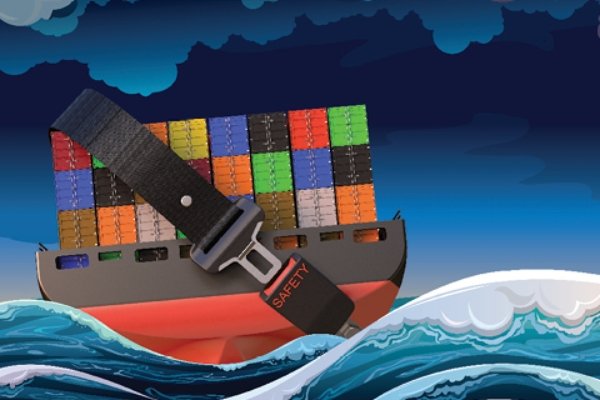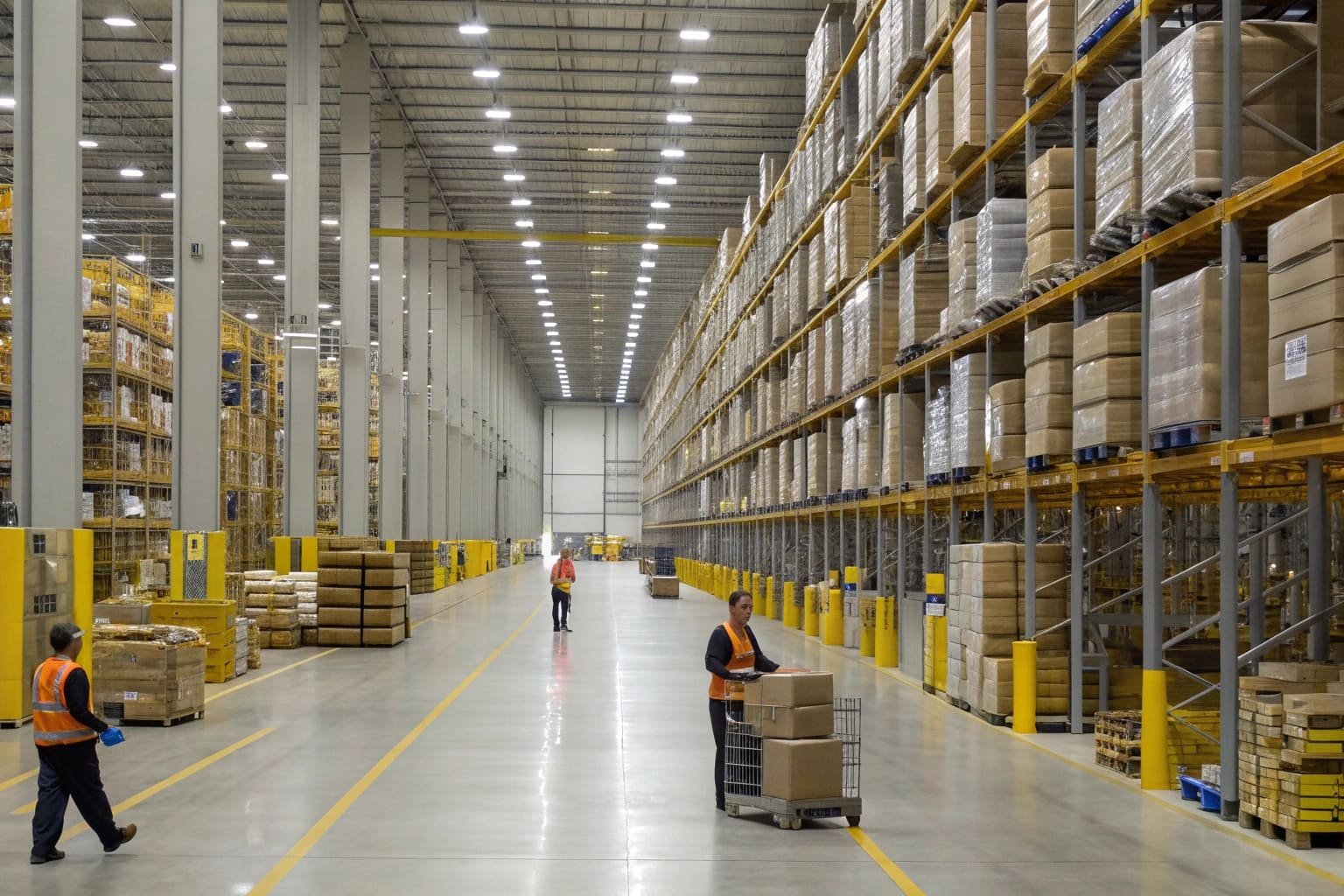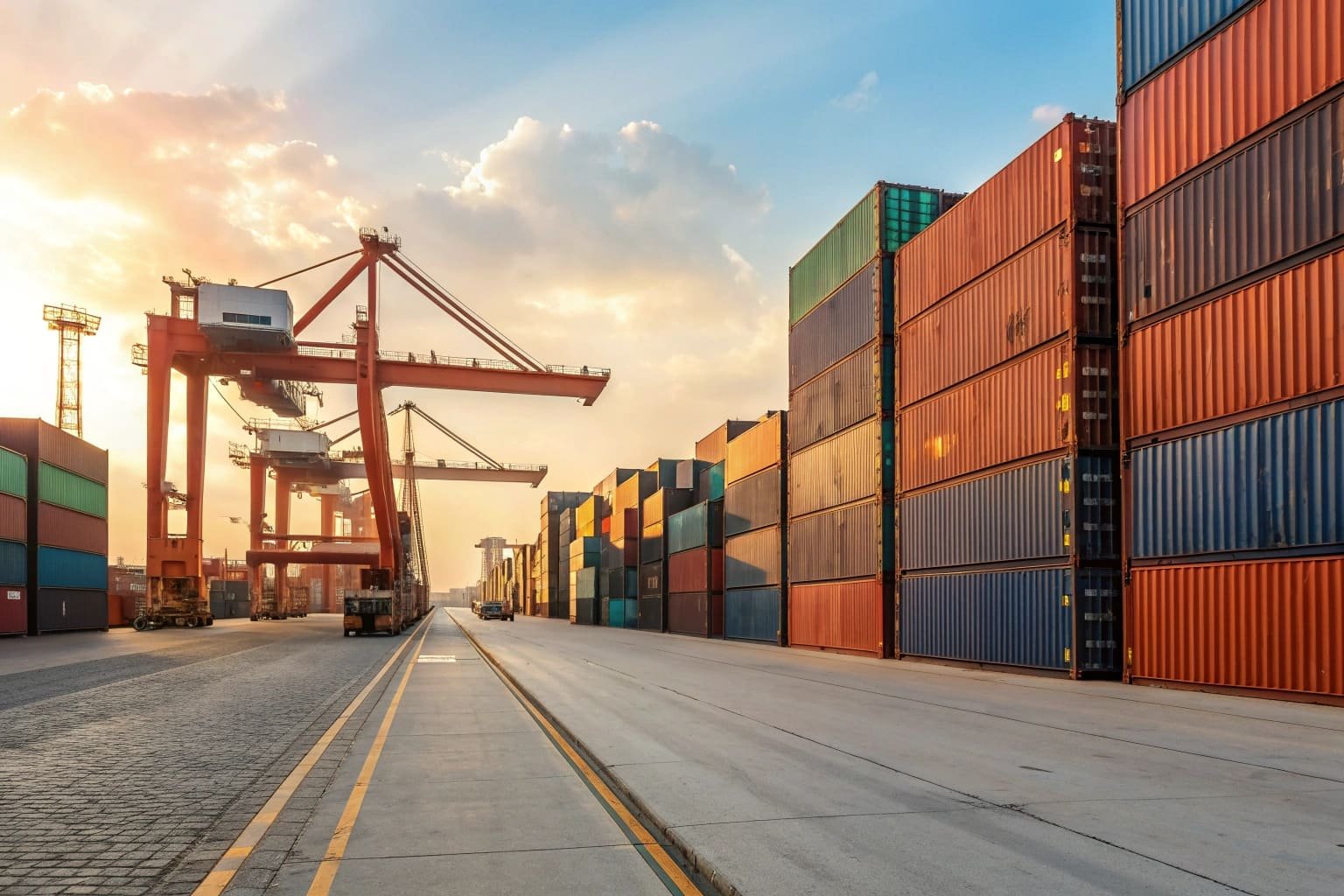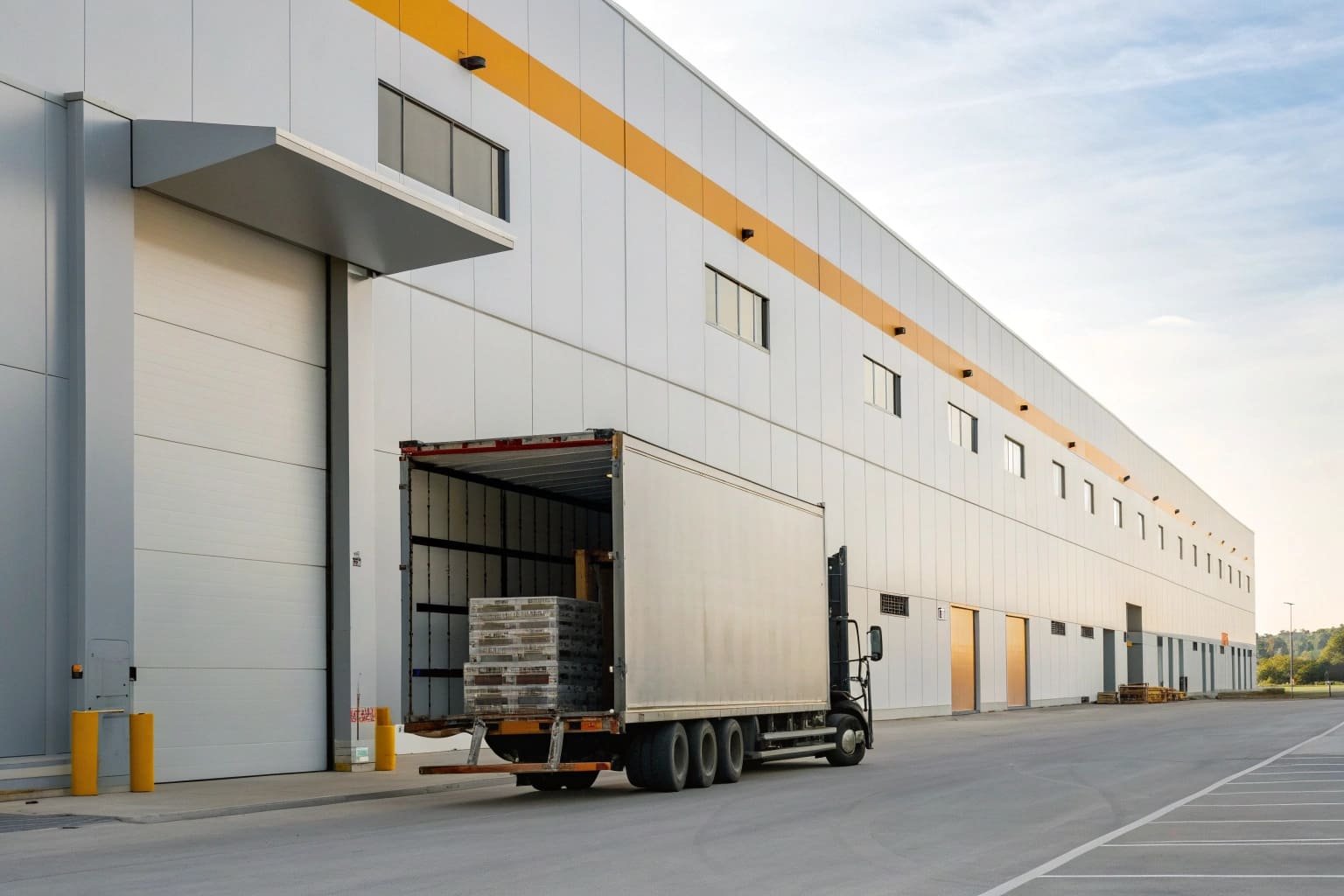In today’s globalized economy, businesses are increasingly reliant on shipping goods across vast distances, whether domestically or internationally. As goods are transported by land, sea, or air, they face various risks such as damage, theft, or loss. For businesses, this can result in significant financial losses, especially if high-value goods are involved. Cargo insurance is an essential safety net that protects business owners from the potential financial disaster that might arise during the transportation process.
Cargo insurance ensures that, should any unforeseen incidents occur during the shipping process, businesses can recover their financial losses. It’s not just for large corporations—small businesses also benefit greatly from securing the proper cargo insurance for their shipments. This guide will explain the importance of cargo insurance, the types of coverage available, how to choose the right policy, and much more.
What is Cargo Insurance?
At its core, cargo insurance is a type of policy designed to protect goods and commodities while they are being transported. The primary goal of this insurance is to safeguard the shipper or business owner from financial losses caused by damage, theft, or loss of goods during transit. It is especially useful when shipping valuable or sensitive goods that require extra protection.
Cargo insurance differs from the basic coverage provided by carriers, such as freight companies, airlines, or shipping lines. These carriers typically offer limited liability, meaning that they may only compensate a small portion of the total value of lost or damaged goods, often based on the weight of the cargo rather than its actual value. Cargo insurance, however, provides comprehensive coverage based on the full value of the goods being shipped.
The key benefits of cargo insurance include:
- Financial protection: Ensures the shipper recovers the full value of goods in case of damage or loss.
- Risk management: Reduces the business’s exposure to unforeseen risks during transit.
- Peace of mind: Business owners can focus on operations without worrying about the security of their shipments.
Why is Cargo Insurance Necessary for Your Business?
The shipping process involves multiple stages, each fraught with risks. Goods can be damaged in transit due to poor handling, accidents, or natural disasters. Theft is another significant risk, especially for high-value items. For businesses that ship goods regularly, the question isn't whether something will go wrong, but when.
Here are several reasons why cargo insurance is essential for your business:
- Protection Against Financial Loss: Every time a shipment leaves your warehouse or port, it faces the risk of damage or loss. Uninsured shipments can result in financial disasters if valuable goods are lost or damaged in transit. Cargo insurance ensures that you are reimbursed for the full value of the shipment, protecting your cash flow and preventing devastating financial losses.
- Compliance with Trade Regulations: In many cases, cargo insurance is a regulatory requirement, especially in international trade. For example, the Carriage of Goods by Sea Act (COGSA) governs sea transport and limits the liability of carriers, placing a greater responsibility on the shipper to ensure their goods are properly insured. Similar regulations exist for air freight under the Montreal Convention. Businesses engaged in international shipping must comply with these laws, making cargo insurance a necessity.
- Limited Carrier Liability: Most shipping companies offer limited liability coverage, but it’s often insufficient to cover the full value of your goods. For instance, an ocean carrier might limit their liability to just a few dollars per kilogram, far below the value of most shipments. Relying solely on the carrier’s liability coverage could leave your business exposed to significant financial loss.
- Unforeseen Risks: Beyond common risks such as damage or theft, shipments are vulnerable to natural disasters, political unrest, and even piracy, particularly in certain regions of the world. Cargo insurance policies are designed to cover these unforeseen risks, ensuring your business is protected from the unpredictable.
- International Trade and Global Expansion: As businesses expand their operations globally, the need for reliable cargo insurance becomes even more crucial. Different countries have different regulations, risks, and infrastructure. Having comprehensive cargo insurance guarantees that your shipments are protected regardless of the destination or the challenges involved in international transport.
- Coverage for High-Value Goods: For businesses shipping expensive or sensitive items, such as electronics, machinery, or luxury goods, the stakes are even higher. A single incident could result in losses worth millions. Cargo insurance provides the necessary protection to ensure that your high-value goods reach their destination intact or that you’re fully compensated if they don’t.
Types of Cargo Insurance You Should Know About
Cargo insurance comes in various forms to suit different transportation methods, business needs, and risk levels. Understanding the different types of cargo insurance is key to choosing the right coverage for your business.
1. Land Cargo Insurance
Land cargo insurance covers goods that are transported over land via trucks, trains, or other land-based means. This insurance protects against common risks faced during land transportation, such as:
- Accidents: Collisions or road accidents that result in damage to the cargo.
- Theft: Cargo theft is a significant risk, especially when goods are stored in trucks or at transit points.
- Natural Disasters: Events such as floods, landslides, or storms can damage cargo in transit.
Land cargo insurance is especially important for businesses that rely on domestic shipping within countries or across borders using trucks and railroads.
2. Marine Cargo Insurance
Marine cargo insurance covers goods transported via sea or air, making it essential for international shipments. Marine insurance is typically divided into two main categories:
- Ocean Cargo Insurance: Provides coverage for goods transported by sea, including risks such as shipwrecks, piracy, storms, and rough seas.
- Air Cargo Insurance: Protects goods shipped by air, covering risks such as plane crashes, turbulence-related damage, or loss due to handling at airports.
Within marine insurance, there are two primary types of coverage:
- All-Risk Coverage: This is the most comprehensive form of coverage, protecting against nearly all types of damage or loss, except those explicitly excluded in the policy.
- Named Perils Coverage: This type of insurance covers only specific risks that are named in the policy, such as fire, explosion, or piracy. Named perils policies are typically more affordable but provide less extensive coverage than all-risk policies.
3. Open Policy Cargo Insurance
Open policy cargo insurance is ideal for businesses that ship goods frequently. Rather than purchasing individual policies for each shipment, an open policy covers all shipments made during a specific period, such as a year. This not only simplifies the insurance process but also provides consistent coverage across all shipments. It is particularly useful for businesses engaged in continuous import and export activities.
4. Specific Voyage Insurance
For businesses that only ship goods occasionally or have one-time, high-value shipments, specific voyage insurance provides coverage for a single shipment. This type of insurance is tailored for a particular journey and ends once the shipment reaches its destination. It is commonly used for rare or high-stakes shipments that require extra protection.
5. Warehouse-to-Warehouse Coverage
Warehouse-to-warehouse coverage provides a seamless insurance solution, protecting goods from the moment they leave the warehouse of origin until they arrive at the warehouse of the final destination. This type of coverage ensures that goods are insured throughout the entire supply chain, including time spent in storage or transit hubs.
This type of coverage is particularly useful for businesses that rely on complex supply chains with multiple points of transfer, as it eliminates gaps in coverage that might occur between different stages of the shipping process.
How to Choose the Right Cargo Insurance for Your Business
Selecting the right cargo insurance policy is a critical decision that requires careful consideration. While there are many options available, the best policy for your business will depend on several factors, including the types of goods you ship, the routes you use, and the specific risks you face. Here are the key steps to choosing the right cargo insurance for your business:
1. Analyze Your Shipping Practices
Begin by evaluating your business’s shipping practices. Do you primarily ship domestically, or do you engage in international trade? How frequently do you ship, and what is the average value of your shipments? Businesses that ship goods frequently may benefit from open policies, while those that ship sporadically may prefer single-voyage policies.
It’s also essential to consider the mode of transportation you use. Shipping by sea, air, or land each involves different risks, so your insurance should be tailored to address the specific risks associated with your shipping methods.
2. Evaluate the Value of Your Goods
The value of the goods you ship plays a major role in determining how much insurance coverage you need. It’s crucial to ensure that your policy covers the full replacement value of your goods, including any potential additional costs, such as customs fees or penalties that could be incurred if the shipment is lost or delayed.
If your business deals with high-value goods, such as electronics, machinery, or luxury items, you’ll want to ensure that you have enough coverage to compensate for the total value of your goods in case of loss or damage.
3. Review Coverage Terms and Exclusions
Not all insurance policies are created equal, so it’s important to carefully review the terms of your coverage. Look for any exclusions in the policy that may limit your coverage in certain situations. For example, some policies may exclude coverage for damage caused by improper packaging or handling errors, while others may not cover certain types of risks, such as war or political unrest.
4. Consider the Shipping Route and Risks
Different shipping routes come with different risks. For example, shipping goods through regions known for piracy or political instability may require additional coverage, while domestic shipping routes may face risks related to road accidents or theft. Ensure that your insurance policy addresses the specific risks associated with your shipping routes.
5. Assess Your Risk Tolerance
Every business has a different tolerance for risk. If your business can afford to absorb some loss, you may opt for a less comprehensive policy with lower premiums. However, if you prefer complete protection, you may want to invest in an all-risk policy that covers a wide range of potential losses. Balancing the cost of insurance against your risk tolerance will help you make an informed decision.
6. Work with a Reputable Insurer
Finally, it’s crucial to work with a reputable insurance provider. Cargo insurance is a specialized field, and you’ll want to choose an insurer with experience in handling cargo claims. Look for an insurer with a strong track record of settling claims promptly and fairly. Check customer reviews, industry ratings, and seek recommendations to ensure you’re working with a reliable provider.
Who is Responsible for Buying Cargo Insurance?
The responsibility for purchasing cargo insurance typically falls on either the buyer or the seller, depending on the terms of the shipping agreement. International commercial terms, known as Incoterms, often determine which party is responsible for insuring the goods during transit.
Buyer’s Responsibility (FOB Shipping)
In FOB (Free On Board) shipping agreements, the buyer is responsible for purchasing insurance for the goods once they are loaded onto the shipping vessel. This means that the buyer assumes the risk of loss or damage during transit from the point of loading onwards. It is up to the buyer to arrange appropriate cargo insurance to cover the shipment.
Seller’s Responsibility (CIF Shipping)
Under CIF (Cost, Insurance, and Freight) shipping agreements, the seller is responsible for purchasing insurance for the goods while they are in transit. The seller covers the insurance costs until the goods arrive at the destination port, at which point the responsibility transfers to the buyer. This arrangement is common in international trade and ensures that the goods are protected throughout the journey.
It’s important to carefully review your shipping agreements to understand who is responsible for purchasing cargo insurance, especially when engaging in international trade.
What Does Cargo Insurance Cover?
Cargo insurance policies vary, but most offer coverage for a wide range of risks. Here are the common areas of coverage you can expect:
1. Physical Damage
Cargo insurance covers physical damage to goods that occurs during transit. This can include damage caused by accidents, poor handling, or natural disasters. For example, if your goods are damaged in a truck collision, your insurance policy would compensate for the repair or replacement of the damaged items.
2. Theft and Piracy
Theft is a significant risk during the shipping process, especially for high-value goods. Cargo insurance provides protection against theft, whether it occurs during transit or at a storage facility. For international shipments, piracy is also a concern, particularly in certain regions known for pirate activity. Cargo insurance typically covers losses due to piracy, ensuring that your business is protected from this risk.
3. Loss of Goods
In addition to damage and theft, cargo insurance covers loss of goods. This can occur when goods are misplaced, lost at sea, or otherwise fail to reach their destination. Loss of goods is a rare but serious risk, and cargo insurance ensures that your business is compensated if your goods go missing during transit.
4. Natural Disasters
Natural disasters, such as hurricanes, floods, earthquakes, or fires, can cause significant damage to goods during transit. Cargo insurance policies typically provide coverage for damage caused by these events, ensuring that your business is not financially burdened by the aftermath of a natural disaster.
5. General Average
General average is a maritime law principle that allows for the sacrifice of cargo to save a ship in distress. For example, if a ship is in danger of sinking and the crew must throw cargo overboard to lighten the load and save the vessel, the cargo owner will suffer a loss. Cargo insurance covers such losses, ensuring that your business is compensated for any goods sacrificed under the general average principle.
6. Delay Coverage
In some cases, cargo insurance may also provide coverage for delays in shipment. This is particularly important for businesses shipping time-sensitive goods, such as perishable items or products with strict delivery deadlines. Delay coverage ensures that your business is compensated for losses resulting from delays beyond your control.
How Does Cargo Insurance Differ from Liability Insurance?
Cargo insurance and carrier liability insurance are often confused, but they serve very different purposes. Understanding the difference between the two is crucial for ensuring that your business has adequate protection.
Scope of Coverage
Cargo insurance provides comprehensive protection for the goods being shipped, covering damage, theft, loss, and other risks during transit. It compensates the shipper or owner of the goods based on the total value of the shipment.
Carrier liability insurance, on the other hand, is limited to covering damages caused by the carrier’s negligence. For example, if the carrier mishandles the goods and causes damage, their liability insurance may cover a portion of the loss. However, the compensation provided by carrier liability insurance is typically much lower than the value of the goods.
Compensation Limits
The compensation provided by carrier liability insurance is often limited to a specific amount based on the weight of the goods, rather than their actual value. For example, a carrier may be liable for only a few dollars per kilogram of cargo, which is far less than the total value of most shipments.
Cargo insurance, by contrast, compensates the shipper based on the total declared value of the goods, ensuring that the business receives adequate compensation for any loss or damage.
Flexibility
Cargo insurance policies are highly customizable, allowing businesses to choose the level of coverage that suits their needs. Carrier liability insurance, however, is a standardized policy offered by the carrier, with little room for customization.
Key Benefits of Cargo Insurance
Cargo insurance offers several important benefits that make it a valuable investment for business owners:
1. Comprehensive Protection
Unlike carrier liability insurance, which is limited in scope, cargo insurance provides comprehensive coverage for a wide range of risks. This includes protection against damage, theft, loss, natural disasters, and more. With cargo insurance, you can be confident that your business is fully protected against any unforeseen incidents that may occur during transit.
2. Global Reach
For businesses involved in international trade, cargo insurance offers global coverage. This means that your goods are protected no matter where they are being shipped, whether it’s across the country or across the world. Cargo insurance ensures that you are covered, regardless of the destination or the risks associated with the shipping route.
3. Risk Mitigation
Cargo insurance helps businesses mitigate risk by transferring the financial burden of loss or damage to the insurance provider. This reduces the business’s exposure to risk and ensures that operations can continue smoothly, even in the event of a shipping incident.
4. Financial Stability
By protecting against the financial losses associated with damaged or lost goods, cargo insurance helps businesses maintain financial stability. This is particularly important for small and medium-sized enterprises (SMEs), where a single large loss could have a significant impact on cash flow and profitability.
5. Tailored Coverage
Cargo insurance policies are highly customizable, allowing businesses to tailor the coverage to their specific needs. Whether you’re shipping high-value goods or need protection for frequent shipments, cargo insurance can be tailored to meet the unique requirements of your business.
Conclusion
As a business owner involved in the shipping of goods, cargo insurance is not just an option—it’s a necessity. From safeguarding your goods from theft, damage, and loss to ensuring compliance with trade regulations, cargo insurance provides essential protection for businesses of all sizes. Whether you ship domestically or internationally, it’s crucial to choose the right cargo insurance policy based on the value of your goods, the risks associated with your shipping routes, and the specific needs of your business.
Investing in the right cargo insurance ensures that your business remains financially protected and operationally secure, no matter what challenges arise during the shipping process. Protect your investments, mitigate risks, and secure the future of your business by choosing a cargo insurance policy that fits your needs today.






